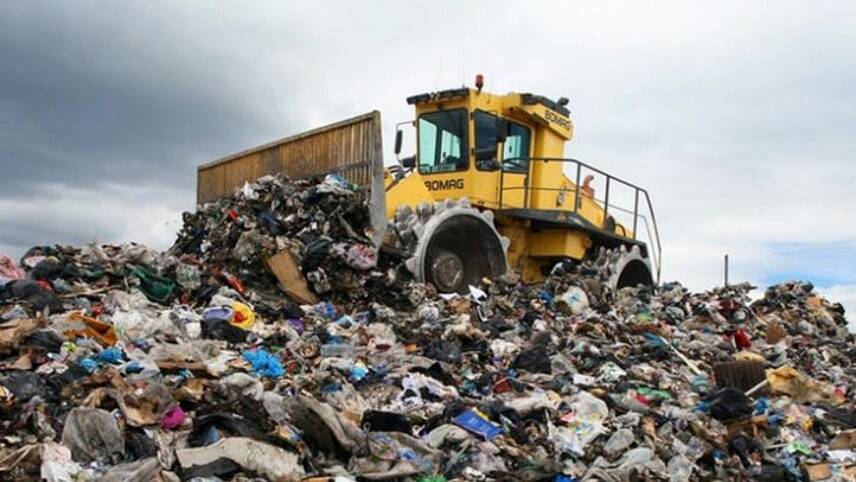Register for free and continue reading
Join our growing army of changemakers and get unlimited access to our premium content

Image: Steve Morgan at WWF UK
That is according to a new report from WWF, released on Monday (8 June) to mark World Oceans Day.
Entitled ‘Transparent 2020’, the report tracks the plastics footprint of each of these five corporates, all founding members of the NGO’s ‘ReSource: Plastic’ initiative, to mark the scheme’s first anniversary. Under the scheme, corporate members are given access to a digital platform which enables them to develop specific actions on the road to reaching their long-term, large-scale ambitions to reduce their reliance on single-use plastics.
The platform is laid out across three key pillars, namely maximising, measuring and multiplying the impact which can be achieved if corporates “correctly” implement ambitious plastic plans.
The new report details how each of the five companies has used the digital tools and WWF’s other support to measure and manage their plastics footprint, and what the data collected reveals about the systematic challenges in the plastics industry.
It reveals that all five of the assessed companies are exploring refillable or reusable packaging systems to replace as much as 20% of their current portfolios, and have set time-bound, numerical targets for increasing both the recyclability of their packaging and the amount of recycled plastics they source. Unanimous difficulty in making rapid progress against the latter of these aims, WWF concluded, points to systemic challenges in recycling infrastructure, collection systems and supply chains.
In order to address these challenges, the NGO is calling on ReSource members to set internal measures which disincentivise the use of virgin plastic and to collaborate in industry-wide lobbying for policies which will promote the availability and adoption of recycled content – such as the incoming requirements in the EU and the UK for plastic products to incorporate at least 30% recycled content, or face higher levels of tax.
The report also urges ReSource members to accelerate efforts to remove small, hard-to-recycle plastics such as straws and stirrers from their global portfolios; to work with industry bodies to boost plastic recycling rates in the US, currently stagnating around 9% and to develop ‘action plans’ for minimizing plastic pollution in the worst-affected nations, such as Mexico, China, India and the Philippines. Along with the US, the report reveals, 57.4% of the plastics from the analysed companies that are then landfilled end up in these geographies.
On the latter recommendation, WWF urges corporates to collaborate with each other, NGOs, conservation groups and policymakers rather than working alone. Such partnerships can help ensure strong environmental and social standards, prevent unintended consequences and bring about broader change, the report concludes.
Bio-based plastics, which account for up to 11.3% of the analysed corporates’ packaging portfolios, also receive detailed analysis and recommendations. WWF warns members against shifting to bioplastics without prioritising and investing in recycled stocks, and against sourcing bioplastics in a way which is not one-planet compatible. For example, some bioplastics require huge amounts of land and water to produce, or are not easily recyclable or degradable, undoing, on balance, any benefits of displacing virgin fossil-based materials.
WWF’s recommendations have been seconded by Ocean Conservancy and by the Ellen MacArthur Foundation, whose New Plastics Economy Global Commitment has been signed by more than 250 organisations. The Commitment aims to create a “new normal” for plastic packaging by eliminating single-use packaging materials, increasing the amount of reused or recycled plastics in new products and innovate to ensure 100% of plastic packaging can be reused, recycled, or composted by 2025.
The Ocean Conservancy’s project director for corporate strategy and policy, Edith Cecchini, said the WWF report provides “valuable insights” but must ultimately be framed as a starting point, not an endpoint, for holistic action on plastics.
“This initial report… is critical as it may ultimately allow for greater mitigation efforts, such as the elimination of unnecessary plastic and/or allow for redesign to support higher recycling rates through consolidation,” she explained. “It is also important to recognise that this is just the beginning of the data collection and there is a lot more we can learn as more data is provided. The Footprint Tracker has the potential to track real progress made by these and additional companies in the years ahead.”
‘Drastic change’ needed
WWF launched ReSource: Plastic after its own research concluded that a further 104 million tonnes of plastic will “leak” into ecosystems by 2030 if policymakers, businesses and consumers do not collaborate to “drastically change” their approaches.
The research found that, despite strong pledges from individual companies, the amount of plastics produced, littered and incinerated globally would increase “dramatically” this decade, due to a lack of ambitious and joined-up action.
In addition to the devastating environmental and social impacts of plastic pollution, the crisis also has financial implications for businesses, with between $80bn and $120bn being lost from the global economy every year due to a linear system for plastic packaging.
The publication of WWF’s latest report comes at a time of growing concern that global efforts to reduce single-use plastic will go into reverse, given that the Covid-19 pandemic has heightened hygiene concerns around reusables. Some businesses and governments have used the current context to push-back on measures to encourage reuse, while others have not but have been forced to delay the introduction of new schemes. Additionally, plummeting oil prices have served to make recycled feedstocks and plastic-free alternatives less cost-competitive against virgin plastics.
Moreover, the current crisis has created a growing waste stream of hard-to-recycle or not-recyclable PPE, the majority of which is plastic. If just 1% of the masks being used globally at present find their way into the natural environment, it will be the equivalent of a bin lorry full every minute, according to City to Sea.
Sarah George


Please login or Register to leave a comment.